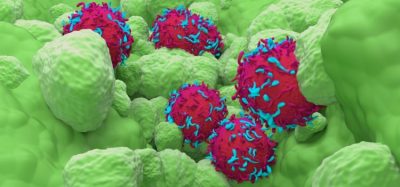Novel breast cancer treatment approach significantly enhances survival
Posted: 13 May 2025 | Catherine Eckford (European Pharmaceutical Review) | No comments yet
With its detailed safety data for chemotherapy and olaparib to treat early-stage breast cancer, the trial findings could lead to improved patient outcomes.


New research has proposed a novel approach for treating early-stage breast cancer with inherited BRCA1 and BRCA2 gene mutations. One hundred percent of patients survived three-years post-surgery, indicating the most effective treatment to date for this indication.
Current standard treatment involves chemotherapy and immunotherapy to shrink the tumour, before surgical removal. Uniquely, the Phase II/III trial added chemotherapy and oral olaparib pre-surgery. Patients had 48 hours between being given chemotherapy and olaparib.
In January, National Institute for Health and Care Excellence (NICE) recommended AstraZeneca and MSD’s olaparib for adults with HER2-negative, locally advanced or metastatic breast cancer with germline BRCA1 or BRCA2 mutations following chemotherapy.
A novel clinical trial design – utilising olaparib and chemotherapy for breast cancer
The researchers theorised this is due to a patient’s bone marrow being able to recover from chemotherapy, and leaving the tumour cells vulnerable to the targeted drug. Of the 39 patients given chemotherapy then olaparib, one patient relapsed three years post-surgery, according to Abraham et al.
Comparatively, the survival rate for the control arm of 45 patients, who received chemotherapy alone, was 88 percent three years after surgery. Of the nine patients who relapsed, six died, the data showed.
In the trial, patients only were given the tablets for 12 weeks prior to surgery. Standard treatment involves taking olaparib for 12 months after surgery. The new approach therefore could make it more economical for use on the NHS.
“While this research is still in its infancy, it is an exciting discovery that adding olaparib at a carefully-timed stage of treatment can potentially give patients with this specific type of breast cancer more time”
“It is rare to have a 100 percent survival rate in a study like this and for these aggressive types of cancer,” explained Addenbrooke’s consultant and trial lead, Professor Jean Abraham.
“While this research is still in its infancy, it is an exciting discovery that adding olaparib at a carefully-timed stage of treatment can potentially give patients with this specific type of breast cancer more time…Further studies in more patients are needed to confirm whether this new technique is safe and effective enough to be used by the NHS,” Chief Executive of Cancer Research UK, Michelle Mitchell shared.
The researchers suggested that based on the findings, their novel treatment approach could be utilised in other BRCA mutated cancers, such as some ovarian, prostate and pancreatic cancers.
Mark O’Connor, Chief Scientist in Early Oncology R&D, AstraZeneca, added that the findings will need validation in a larger study.
The study results were published in Nature Communications.
Related topics
Anti-Cancer Therapeutics, Big Pharma, Data Analysis, Drug Development, Industry Insight, Research & Development (R&D), Therapeutics









